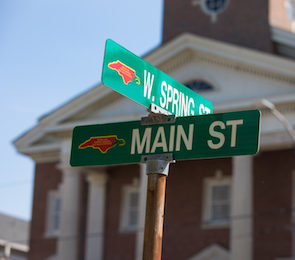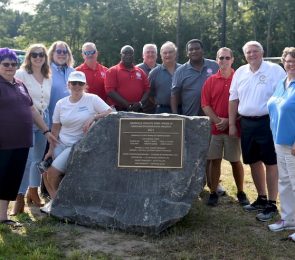What is 9-1-1?
9-1-1 is a universal number for reporting emergencies and requesting assistance for sheriff, police, fire or EMS agencies. Trained personnel answer incoming calls and then send assistance that is needed.
What is Enhanced (or) E9-1-1?
Enhanced 9-1-1 or E9-1-1 is a system that routes emergency phone calls made from either a land-line or wireless telephone to the closest emergency communications center.
With Enhanced 9-1-1 the phone number and location information typically appear on a computer screen and the 9-1-1 telecommunicator will ask the caller to verify the information. Even if the call is disconnected before the telecommunicator answers we may still be able to determine where the call came from. The purpose of Enhanced 9-1-1 is to speak for you when you are unable to speak for yourself.
What is Next Generation (or) NG9-1-1?
Next Generation 9-1-1 or NG9-1-1 is an initiative aimed at updating the 9-1-1 infrastructure across the United States and Canada. North Carolina continues to be on the leading edge of this update, with the first 9-1-1 center migrating in 2018 and plans for many more to make the transition in 2019.
NG9-1-1 will be more tailored to the growing wireless community. Communication Centers will move away from the outdated phone provider 9-1-1 “trunks” to an internet protocol (IP) based network. This will allow the public to transmit text, images, video, and data to 9-1-1 centers, also allowing for more accurate location services. Granville County has been live with Next Generation 9-1-1 services since Nov. 30 of 2020.
Who pays for 9-1-1 service?
Each household, business or wireless (cell phone) customer pays a monthly 9-1-1 surcharge on their phone bill for 9-1-1 service. This fee is .70 cents per month throughout all of the State Of North Carolina and this funding allows the various 9-1-1 Centers to purchase and maintain the necessary equipment, as well as the necessary training for the delivery of the 9-1-1 call.
There is no per call charge for calling 9-1-1.
How do you handle 9-1-1 prank calls?
A prank call is when someone calls 9-1-1 for a joke or calls 9-1-1 and hangs up to see what will happen. Prank calls are not only dangerous, they are a waste of time, money, and resources. If 9-1-1 lines are busy with prank callers, it may affect someone with a real emergency. In most cases it is against the law to make prank 9-1-1 calls.
So how do I make a 9-1-1 call and what should I expect?
- In an emergency, dial 9-1-1 on your telephone. It is a free call. You can also use any type of phone: push button, rotary, cellular/wireless phones and even pay phones.
- Speak clearly, stay calm, give the 9-1-1 telecommunicator your name, address or location where help is needed and your phone number you are calling from.
- State the type of emergency.
- Answer the questions from the 9-1-1 telecommunicator and stay on the telephone if it is safe to do so. Please DO NOT hang up until instructed to do so by the telecommunicator.
- If the caller is reporting a medical emergency, our telecommunicators are trained in Emergency Medical Dispatch (EMD), which enables them to give pre-arrival first aid instructions over the telephone.
- If the caller is reporting a fire emergency, our telecommunicators are trained in Emergency Fire Dispatch (EFD), which enables them to give pre-arrival instructions specific to the type of call over the telephone.
What if a 9-1-1 caller does not speak English?
9-1-1 telecommunicators have the ability to add a foreign language interpreter from an outside service to the line. The non-English speaking caller may hear a short conversation in English and some clicking sounds over the telephone while the interpreter is being added to the call. Please do not hang up during this brief but necessary time.



